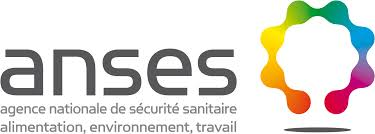Chemycal has been acquired by 3E
Learn MoreChemycal has been acquired by 3E
Learn MoreDiscover how Chemycal PRO helps you boosting your regulatory monitoring:

Since the end of the 1990s, an increased number of nanomaterials have been integrated, because of their specific properties, into the composition of everyday products and in particular food products. Faced with the diffusion of manufactured nanomaterials in our daily life, many questions relating to their identification, their impacts on human health and the environment, as well as the way to regulate them, have emerged. ANSES pays particular attention to the subject and has published, since 2006, several expert reports on nanomaterials. In this line,the Agency is today proposing an inventory of the presence of manufactured nanomaterials in food as well as a method making it possible to determine the most suitable approach for assessing the health risks of foods containing such materials.
Over the past thirty years, the industry, and in particular the food industry, has developed the use of manufactured nanomaterials, used for specific properties at the nanoscale. In view of the concerns that their use gives rise to, ANSES was contacted by the Directorate-General for Food, the Directorate-General for Health, the Directorate-General for Work, the Directorate-General for Risk Prevention and the Directorate-General for competition, consumption and the repression of fraud.
(*) As an additive, to improve the appearance and palatability of the food product (by changing the structure, color, texture, eg additives E 341iii - tricalcium phosphates - or E551 - amorphous silica);
(*) As materials in contact with food, for their functions of improving the security of packaging (eg anti-microbial function provided by nanosilver);
(*) Finally, it was identified the presence of nutrient-oriented ingredients, which may be in the nanoparticulate state (eg calcium carbonate used in infant milks to achieve a sufficient calcium content).
In France, the declaration of substances in nanoparticulate state, compulsory since 2013 via the R-Nano register managed by ANSES, provides that manufacturers, importers and distributors of more than 100 grams of substances in nanoparticulate state per year report the identity of the substances, the quantities handled as well as the intended uses. Despite these obligations, the identification and traceability of nanomaterials in the food sector is still limited today. However, they constitute an essential step in the assessment of health risks.
CONTINUE READING ON www.anses.fr (Automatically translated from French)
2013 © MyChemicalMonitoring. ALL Rights Reserved. About Us | Terms and Conditions